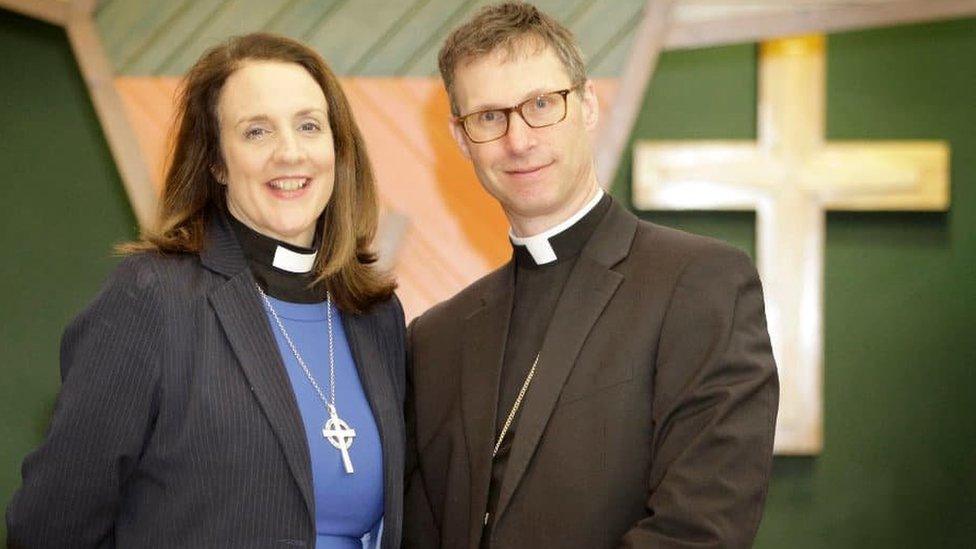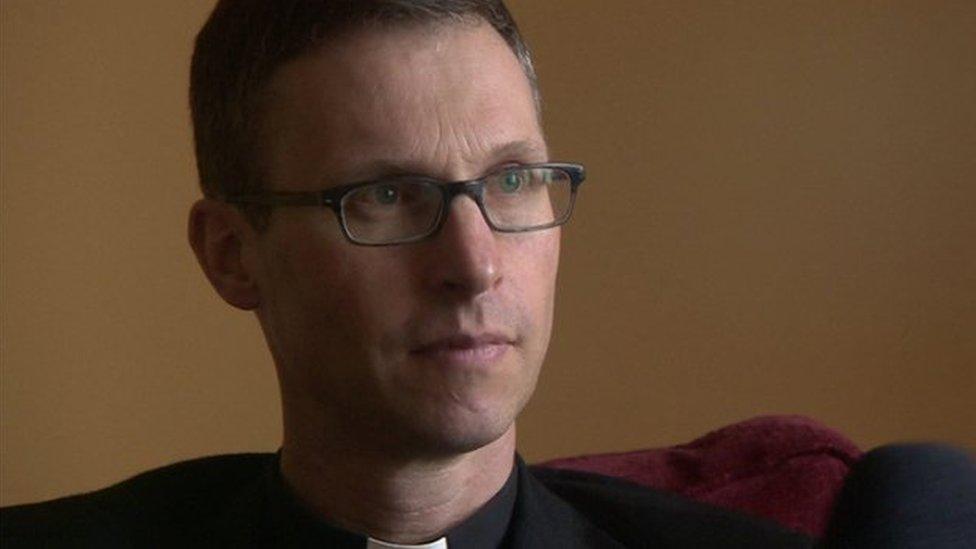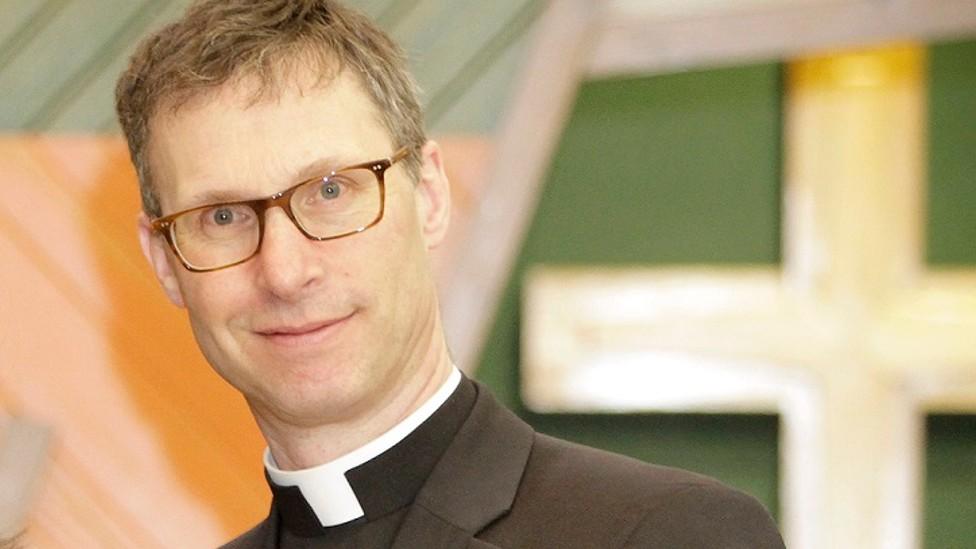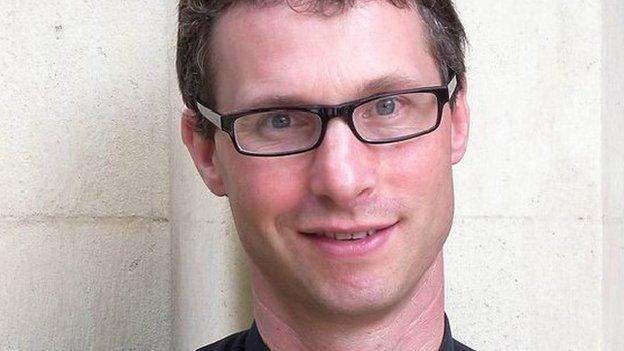Anger as female clergy opponent nominated as Bishop of Blackburn
- Published

The Right Reverend Philip North's nomination was supported by the Right Reverend Dr Jill Duff, the Bishop of Lancaster
A Church of England diocese's decision to promote a bishop who has opposed the ordination of women was "deplorable", a Christian inclusivity group has said.
The Right Reverend Philip North, who has chosen not to ordain female priests, was named as the next Bishop of Blackburn on Tuesday.
Inclusive Church said Bishop North's views made it "a painful appointment".
The bishop said there were "provisions in place for an exercise of conscience for those who hold different views".
Bishop North, who has served as the Bishop of Burnley for eight years, was nominated to become Bishop of Sheffield in 2017, but withdrew from the process after protests by female clergy and other churchgoers.
At the time, it was revealed that he was a member of The Society Under the Patronage of St Wilfrid and St Hilda, a traditionalist Anglican institution which does not accept the ministry of women priests or male priests ordained by female bishops.
'Heavy burden'
Inclusive Church, an organisation which believes in "a church which celebrates and affirms every person and does not discriminate", said giving him the most senior position in the Diocese of Blackburn was "deplorable".
Sharing an article about his appointment on social media, the group said his would be "a painful appointment for many".
Women and the Church, a gender equality campaign group, said while Bishop North had "many gifts" and had been "supportive of women in a range of ministerial posts", it could not support his nomination as "some female clergy would struggle to flourish under his oversight".
"When parishioners come to understand that their bishop is not personally confident that female priests can undertake priestly roles, such as consecrating the bread and wine, this undermines the authority of their vicar, if she is a woman," the group said.

Bishop North said he was "hugely appreciative of the ministry of my female clergy colleagues"
The body's chairwoman, the Reverend Martine Oborne said she had "personally struggled" after her own diocesan bishop had refused to ordain her and she had to be ordained by a bishop from a different diocese.
"Fortunately today, both my diocesan and area bishops recognise my orders, but I don't think I could personally flourish in my ministry if they did not," she said.
"Even in my present situation, I find it undermining to explain to members of my congregation that some of my clergy colleagues... would not receive bread and wine that I had consecrated, so I tend not to say anything about the situation.
"Nonetheless, this is a heavy burden to carry and makes me feel that I am a second-class priest.
"And I fear some female clergy with diocesan bishops who don't recognise their ordinations, no matter how supportive they are, may feel this even more."
'Positive move'
In a statement, Bishop North said he was "hugely appreciative of the ministry of my female clergy colleagues".
He said female clergy in the Blackburn diocese were "fully and equally part of the diocese and have a ministry that is grace-filled and transformative".
"As in every Church of England diocese, there are provisions in place for an exercise of conscience for those who hold different views on the ordination of women," he added.
The consultation process locally that has led to Bishop North's nomination was chaired by the Right Reverend Dr Jill Duff, the Bishop of Lancaster, who said he was "a prophetic leader and a tender-hearted pastor".
She said she had "found much joy in serving alongside Philip", adding: "He has inspired me, encouraged and greatly supported me."
"I believe that Philip is called for such a time as this to lead the Diocese of Blackburn, cherishing the diversity of opinion, theology and background that our county has always welcomed."
The diocese's dean of women's ministry, the Reverend Anne Beverley, said Bishop North's appointment was "going to be difficult for some people, but we know Philip and we know just how supportive of the women's ministry he is".
"I know externally this looks quite a difficult thing, but actually, we understand how to get along together [and] how to flourish together," she said.
"For us, this isn't a backward step, this is very much a good step. It's a positive move for our diocese."
She added that the criticism of the appointment showed the Church was "learning how to disagree well, so we learn how to love one another and yet disagree over some fundamental things".
"That is actually quite a mature thing to be able to do."

Why not follow BBC North West on Facebook, external, Twitter, external and Instagram, external? You can also send story ideas to northwest.newsonline@bbc.co.uk
Related topics
- Published10 January 2023

- Published10 March 2017

- Published9 March 2017
